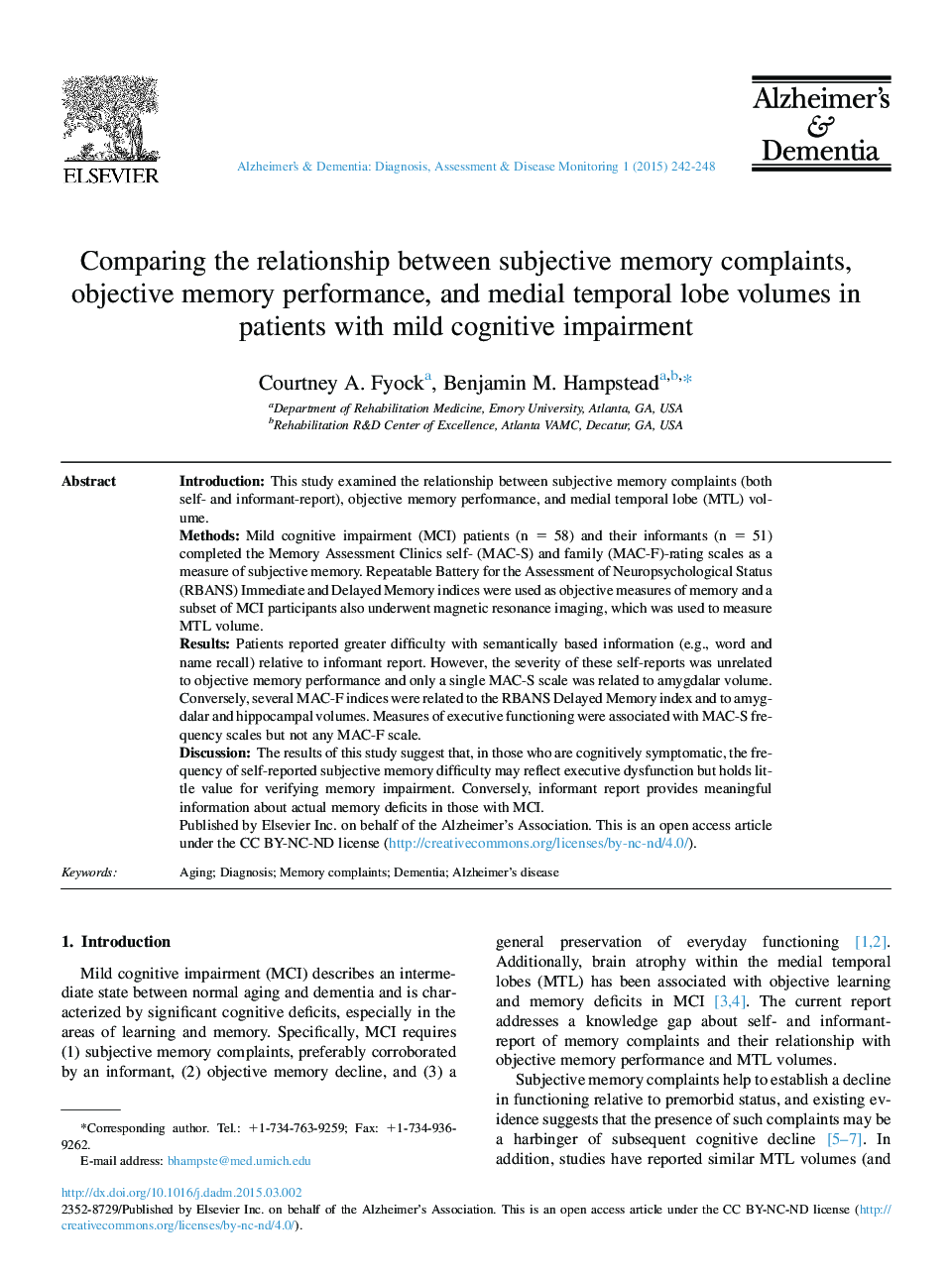| Article ID | Journal | Published Year | Pages | File Type |
|---|---|---|---|---|
| 3032041 | Alzheimer's & Dementia: Diagnosis, Assessment & Disease Monitoring | 2015 | 7 Pages |
IntroductionThis study examined the relationship between subjective memory complaints (both self- and informant-report), objective memory performance, and medial temporal lobe (MTL) volume.MethodsMild cognitive impairment (MCI) patients (n = 58) and their informants (n = 51) completed the Memory Assessment Clinics self- (MAC-S) and family (MAC-F)-rating scales as a measure of subjective memory. Repeatable Battery for the Assessment of Neuropsychological Status (RBANS) Immediate and Delayed Memory indices were used as objective measures of memory and a subset of MCI participants also underwent magnetic resonance imaging, which was used to measure MTL volume.ResultsPatients reported greater difficulty with semantically based information (e.g., word and name recall) relative to informant report. However, the severity of these self-reports was unrelated to objective memory performance and only a single MAC-S scale was related to amygdalar volume. Conversely, several MAC-F indices were related to the RBANS Delayed Memory index and to amygdalar and hippocampal volumes. Measures of executive functioning were associated with MAC-S frequency scales but not any MAC-F scale.DiscussionThe results of this study suggest that, in those who are cognitively symptomatic, the frequency of self-reported subjective memory difficulty may reflect executive dysfunction but holds little value for verifying memory impairment. Conversely, informant report provides meaningful information about actual memory deficits in those with MCI.
